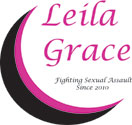In recent years, doctors and activists seem to have definitively identified one substance as the number one date-rape drug in America: alcohol. Alcohol has contributed hugely to the notions of date rape, gray rape, victim-blaming, and to the rapidly spreading rape culture as a whole. Alcohol is considered to be a dangerous drug because it is widely socially accepted, unlike casual drugs (such as marijuana) or much more controversial “hard drugs” such as cocaine and methamphetamine. Especially among college students, no one looks twice at a person who is drinking alcohol. However, to a perpetrator of sexual assault, it can signal a potential target. If you are a female in college, you’ve most likely been told to “watch your drink” when you go out—otherwise, someone could spike it with more potent alcohol, or even slip drugs into it. This advice is only slightly helpful. Besides being a covert form of victim-blaming, the biggest risk to it is that it downplays the danger that is already implicit when drinking—if you ingest enough alcohol, you will be at-risk for a sexual assault even without the use of drugs or physical force.
Being intoxicated to any degree can lead to slowed reactions, loss of consciousness, and a loss of muscle control, which could result in an inability to fight back against an attacker. Unfortunately, it can also lead to memory impairment, which is a huge obstacle for anyone who is a victim of sexual assault while under the influence of alcohol. Reporting a sexual assault to police or campus authorities means that you will have to recount what has happened to you, and the inability to remember certain details clearly can be interpreted as dishonesty. This is why some sexual assault victims decide not to report their assaults, or to follow through with any disciplinary or legal action. Some women are even discouraged from reporting, told that “no one will believe you”, or “that won’t hold up in court.”
Because society has normalized sexual violence to such a large degree, people are constantly forming new excuses for this violence and ways to discount victims; to tell them that they do not matter and their stories are not important enough to be heard. One of the ways this happens is with terms such as “gray rape”: “sex that falls somewhere between consent and denial, in which neither party knew exactly what the other one wanted.” Another, more common term is “date rape.” Date rape is simply defined as rape by someone known to the victim, although it is not very sensible to create a separate term for this, because the Rape, Abuse, and Incest National Network (RAINN) reports that 90% of all sexual assaults and 46% of all rapes are committed by someone known to the victim.
Alcohol is a large factor in the consideration of gray rape and date rape, because it is presumed that if someone did not explicitly consent to sexual contact of any kind, it is likely because they were under the influence of alcohol and not because they really didn’t want to give consent. While this applies more directly to gray rape, date rape contains another set of fallacies entirely: the definition of the term itself, commonly thought of as a lesser or more bearable assault, dispels the very idea that we can place responsibility with the victim by saying such things as “don’t drink around people you don’t know” or “always take a friend out with you” and then blaming them if they don’t.
While alcohol has been labeled the number one date-rape drug, it may be more accurately labeled “the number one contributor to rape culture and public misconceptions about sexual assault.” No matter the age, location, or lifestyle, all women and men should be able to casually drink without the fear of being assaulted or the fear that they will be blamed for anything that happens to them while they are under the influence. All too often, we use one glimpse into another person’s life or story to make a judgment and decide for ourselves what we think they deserve. In the case of sexual assault, this is more dangerous than we can imagine—while alcohol may occasionally cloud the judgment and loosen the inhibitions of those who use it, it should not impair our own judgment so far that we begin to accept sexual assault in any form or by any name.
